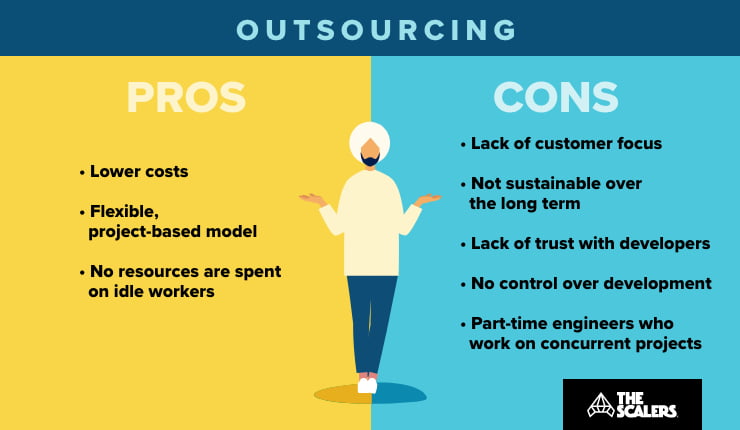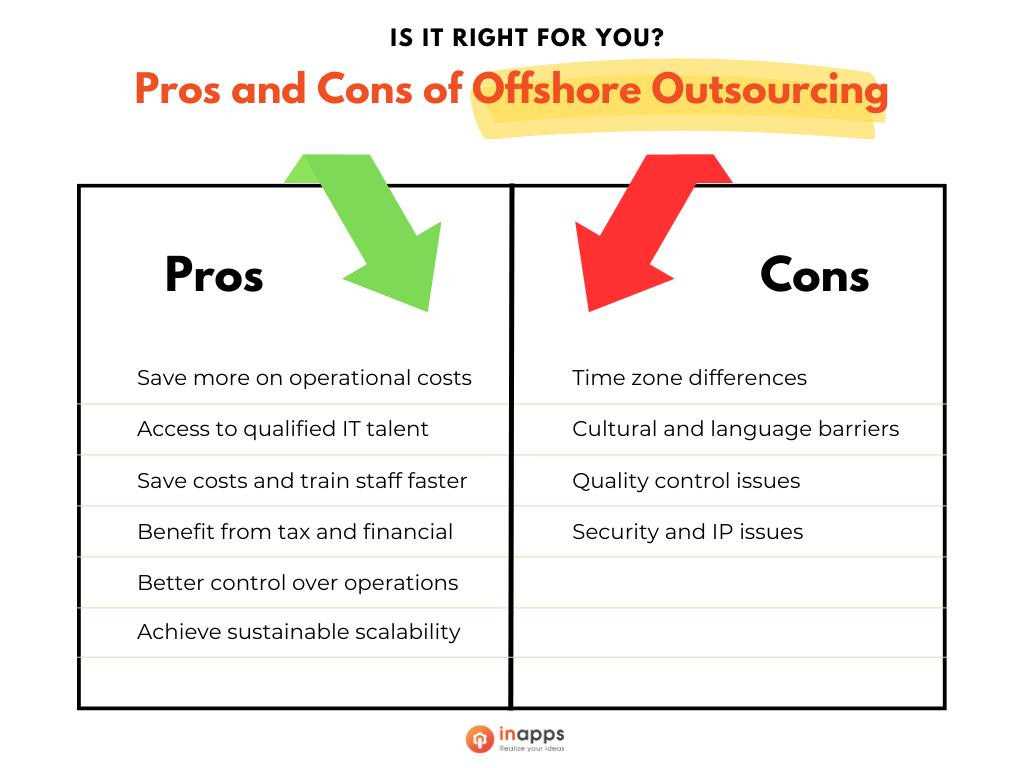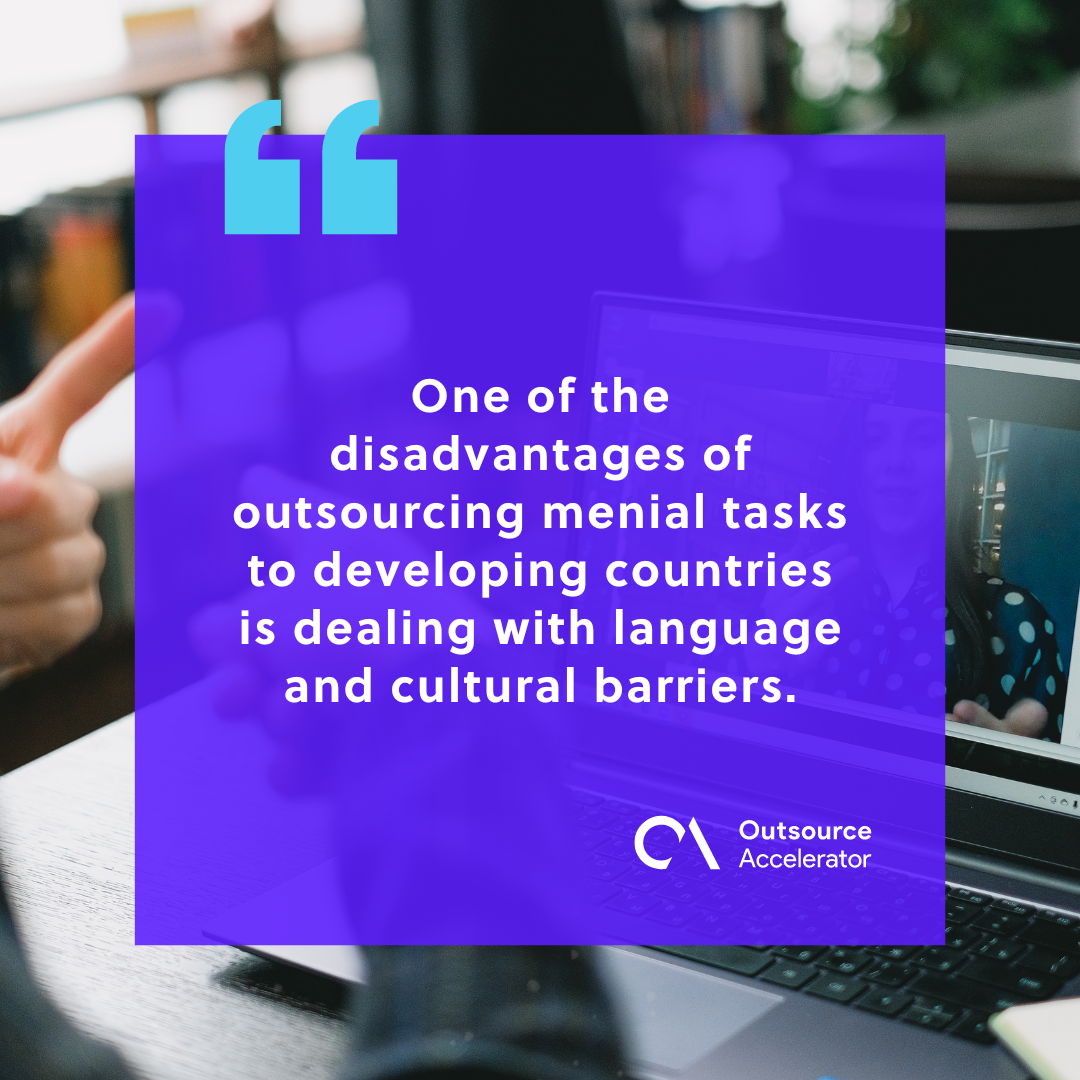Pros And Cons Of Outsourcing Jobs To Foreign Countries

Imagine a bustling marketplace, not just in your hometown, but one that spans the globe. Goods and services flow freely, connecting businesses and consumers across continents. Increasingly, this marketplace includes jobs, with companies weighing the option of sending certain roles overseas. Is it a win-win for everyone, or does it create winners and losers?
The practice of outsourcing, or relocating jobs to foreign countries, is a complex issue with significant economic and social implications. It can offer substantial cost savings and access to specialized talent, but also raises concerns about domestic job losses and ethical considerations. Understanding both the pros and cons is crucial for navigating this ever-evolving global landscape.
The Allure of Outsourcing: A Deep Dive into the Benefits
One of the most compelling reasons companies outsource is cost reduction. Labor costs in countries like India, the Philippines, and Vietnam are often significantly lower than in developed nations. This can translate to considerable savings on salaries, benefits, and overhead expenses.
Beyond cost, outsourcing opens doors to a wider talent pool. A company might struggle to find specialists locally, but discover a wealth of expertise in a foreign market. This access to specialized skills can drive innovation and improve the quality of goods and services.
Furthermore, outsourcing allows businesses to focus on their core competencies. By delegating non-core functions, such as customer service or data entry, companies can free up resources to invest in areas like research and development, marketing, and strategic planning.
Efficiency and Scalability
Outsourcing can also improve efficiency. Specialized outsourcing providers often have established processes and technologies that enable them to perform tasks more quickly and effectively. This can lead to faster turnaround times and improved overall productivity.
Scalability is another key advantage. Outsourcing allows companies to easily scale their operations up or down as needed, without having to invest in additional infrastructure or hire and train new employees. This flexibility can be particularly valuable for businesses that experience seasonal fluctuations in demand.
The Shadow Side: Addressing the Drawbacks of Outsourcing
While outsourcing offers numerous benefits, it also comes with potential drawbacks. The most significant concern is the impact on domestic employment. When jobs are moved overseas, it can lead to job losses in the home country, causing economic hardship for affected workers and communities.
Communication barriers can also pose a challenge. Differences in language, culture, and time zones can make it difficult to effectively communicate and collaborate with overseas teams. This can lead to misunderstandings, delays, and errors.
Quality control is another important consideration. It can be more difficult to monitor and maintain quality standards when work is being performed remotely. This requires careful selection of outsourcing partners and robust quality assurance processes.
Ethical and Security Concerns
Outsourcing also raises ethical concerns about labor practices in foreign countries. It's essential to ensure that outsourcing partners adhere to fair labor standards and provide safe working conditions. Companies should conduct due diligence to avoid inadvertently supporting unethical or exploitative practices. According to the International Labour Organization (ILO), promoting decent work globally remains a critical challenge.
Data security is another major concern, particularly when outsourcing sensitive information. Companies must take steps to protect confidential data from unauthorized access or disclosure. This includes implementing strong security protocols and carefully vetting outsourcing partners.
Finding the Balance: A Path Forward
Ultimately, the decision of whether or not to outsource is a strategic one that should be carefully considered on a case-by-case basis. There is no one-size-fits-all answer. Companies must weigh the potential benefits against the risks and make a decision that aligns with their overall business goals and values.
Moving forward, greater transparency and accountability are needed in the outsourcing industry. Companies should be more transparent about their outsourcing practices and take steps to ensure that their outsourcing partners adhere to ethical and environmental standards. Investing in employee retraining programs and supporting local businesses can help mitigate the negative impacts of job displacement.
The global marketplace is here to stay, and outsourcing is likely to remain a significant part of it. By understanding the complexities and addressing the challenges, we can work towards a more equitable and sustainable approach to global business that benefits both companies and communities. Finding this balance is the key to unlocking the full potential of outsourcing while mitigating its potential harms.



![Pros And Cons Of Outsourcing Jobs To Foreign Countries IT Outsourcing: 8 Pros and Cons [2023]](https://global-uploads.webflow.com/622fa4d65a5fab0c3465af07/627938b52256a99d70dfe882_pros-cons-it-outsourcing-lists.png)













